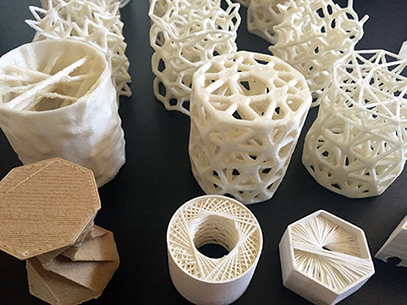
Building in wood has become increasingly interesting from a climate perspective. Additive manufacturing means potential for near-production that reduces environmental impacts. Now the WOULDWOOD project is being launched aiming for a new 3D system for sustainable design and manufacturing in the construction and automotive industries.
The construction industry is one of the largest waste producers and 50 percent of the environmental impact comes from manufacturing. At the same time there is a need to find new resource and energy efficient materials and process systems based on renewable raw materials.
RISE is now taking the initiative into a completely new design and production system that can significantly reduce the environmental impact during the construction process. The project WOULDWOOD aims to create an industrial value chain for advanced additive manufacturing of medium to large wood-based components for the construction and transport sector. The system should enable the designer / architect to work integrated with robots and 3D printers in additive manufacturing. It will also lead to efficient reuse and recycling of components and materials.
“The additive manufacturing system will be very material-efficient and climate-friendly. There will be less waste compared to traditional construction and also fewer transports to and from construction sites,” says project manager Mikael Lindström at RISE.
In the project, new digital tools and customized print heads for 3D printers will be developed alongside a composite material based on renewable Swedish forest raw materials. This is also of great interest to the automotive industry, with the demand for reduced fossil dependence and reduced carbon dioxide emissions. The same manufacturing process will be applicable to components for truck and bus interiors.
“A rough estimate is that a weight loss of up to 20 percent can be achieved. This saves a lot of fuel, alternatively allowing more cargo in each shipment,” Mikael Lindström points out.
WOULDWOOD is part of Sweden’s innovation agency Vinnova’s Challenge-driven innovation programme and runs for two years. RISE coordinates the project, which also involves KTH, Chalmers, Swedish Wood and eight business partners across the entire value chain from raw material suppliers and manufacturing to recycling companies.
Contact
Mikael Lindström
phone: +46 8 676 7433
email: mikael.lindstrom@ri.se
Source
Innventia, press release, 2018-05-22.
Supplier
Chalmers University of Technology
Innventia
KTH School of Architecture
VINNOVA
Share
Renewable Carbon News – Daily Newsletter
Subscribe to our daily email newsletter – the world's leading newsletter on renewable materials and chemicals










